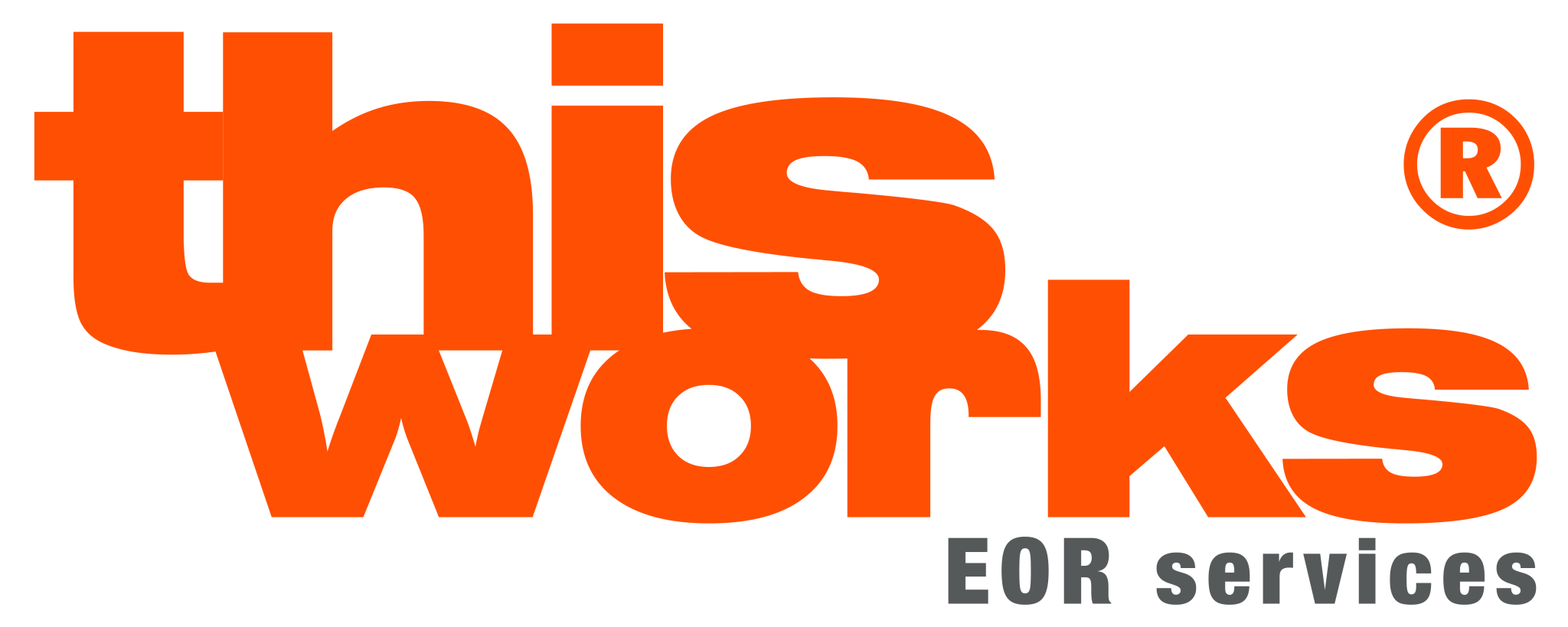
Scaling Sales: Proven Strategies For Growing Your Sales Team On A Budget
Managing a sales team is critical when it comes to the growth of the business, and it is significant when expanding the team. It assists you in getting to the customers, making more sales, and enhancing market visibility without straining your pocket. But doing it on a budget is quite a daunting task. Hubspot says organizations with harmonious sales and marketing generate 208% more marketing revenue.
This blog will discuss How to Grow Your Sales Team on a Budget. The topics we will include are creating the proper framework, establishing proper sales team growth strategies, and utilizing technology to achieve the best outcomes. Also, we will talk about tips for hiring sales executives, Effective onboarding for sales reps, and sales team training programs at a low cost.
You will also discover the advantages of remote hiring for sales expansion, goal definition, and work environment promotion. Last, but not least, we will be answering some of the most frequently asked questions about scaling a sales team with a limited budget.
At the end of this blog, you should be able to implement actionable strategies and knowledge that can assist in growing your sales force efficiently with little to no cost. So, let’s get started and find out how to Grow Your Sales Team on a Budget.
1. Efficient Processes for Sales Team Management
It is essential to establish effective mechanisms for many employees in the sales department.
Here is how to grow your sales team on a budget:
Identifying and implementing efficient processes
Identify processes that create a backlog of work or how a project can be slowed down. After that, define clear task procedures to minimize the number of errors and maintain the same level of performance throughout the team. Ensure that these are done effectively and make changes to them as often as necessary.
Importance of process documentation and standardization
Writing down processes is essential to ensure everyone follows the set procedures. This is important to sustain quality as you grow in size and add more clients. It also facilitates new employees’ sales team training programs as it is less time-consuming. Standardized processes make it easy to scale because you do not have to change how you work to accommodate growth.

Tools and techniques for process improvement
CRM Systems:
Customer Relationship Management (CRM) systems are critical for managing customer interactions and information. It assists in the activities such as lead management, customer management, and sales management.
Sales Automation Tools:
Schedule follow-up emails, meetings, and report generation are some of the tasks that should be automated. This saves time and allows your sales team to work on other, more critical tasks, such as closing the deal.
Increase the sales team’s efficiency by optimizing Sales team growth strategies, describing and formalizing the best practices, and using the appropriate technologies. This not only assists in controlling the current load but also in preparing your team for future growth. Purchasing CRM systems and sales automation software will help minimize time wastage and increase efficiency in your business, leaving your sales representatives to do more of what they are hired for – selling.
2. Leveraging technology to maximize results
Today, technology is a critical element that determines the outcomes of sales operations. It increases productivity, facilitates communication, and offers information to assist your sales personnel in achieving their full potential.
Here’s how you can blend technology with Sales team growth strategies:
Essential tech tools for Sales teams:
Customer Relationship Management (CRM) Software: CRM systems communicate with customers, follow leads, and store customer information. They offer a single point of reference where all the information needed for the sales teams is available, thus creating effective communication and follow-ups.
Sales analytics and reporting tools:
These tools assist in analyzing the sales data and producing reports. They give information about sales, team and customers and their behavior. In this case, using data and information enables one to make rational decisions and enhance sales tactics.
3. Advantages of technology in Sales
- Enhanced communication:
Technology enhances communication between the sales team and the clients. Communication tools such as Ims (The IP Multimedia Subsystem), VC (Venture capital) and collaboration software allow team members to pass information and communicate effectively regardless of the distance.
- Better data management:
Technology helps in the organization of large amounts of customer data. CRM systems and data management tools assist in the arrangement of data in a secure manner so that they can be retrieved easily for analysis and decision-making.
- Improved Sales performance tracking:
Performance monitoring tools give real-time information on the performance of the sales team. They assist in finding the best performers, keeping tabs on the sales goals, and tracking KPIs (Key performance indicators). It also enables managers to offer feedback and assistance to their employees.
The mentioned technologies allow you to optimize your sales activities, enhance cooperation between your employees, and obtain essential information about your sales activities. Embracing technology increases productivity and sets your business’s sales team up for the future. These tools should be adopted to get the best out of your sales and run ahead of your competitors in the market.

4. Cost-effective hiring strategies
Still thinking about how to grow your Sales team on a budget? Picking the right people for the sales team when working under certain constraints can be challenging; however, it can be done. Here’s how you can do it:
Use social media and professional networks
- Publish your job vacancies to reach many people.
- Be a member of groups and communities to find potential candidates.
- Search for candidates who not actively searching for jobs, such as dissatisfied employees.
Utilise referral programs
Referral programs are cost-effective and attract the correct type of talent. Remind your current employees to recommend people they know through incentives such as bonuses and additional vacation days. There are usually people the employees know would be perfect for the company.
How to select candidates for development?
Behavioral Interviews:
Behavioral interviews specifically ask the candidate how they have dealt with particular issues. This will assist you to gauge their problem-solving abilities and how they handle stress. Ask questions like:
- When have you achieved a specific sales target that you deemed challenging?
- Do you shun your customers or handle it differently when they object?
Here you can find some tips on how to prepare for behavioral interview questions.
Assessing cultural fit:
Cultural fit is critical in the long term to guarantee that the chosen candidate will be an excellent fit for the team. When you are being interviewed, mention something about your company’s values and workplace environment. Then, perhaps observe the candidate’s response and decide if they fit the company. Consider questions like:
- What kind of working environment do you like?
- In what way do you relate with others in a group?
If you are interested in that strategy, Skima has put together some benefits and challenges for you.
There are ways to get great sales reps for less through the help of social media, referral bonuses, and interview strategies. These are some ways to identify talents who will give you a good return on investment and work for a long time with your organization.
5. Effective onboarding for Sales reps and training programs
Onboarding and sales team training programs can be crucial factors in defining its effectiveness.
Why is onboarding a significant aspect of talent management?
Onboarding is an art that ensures that the new employees are oriented and welcomed into the organization and can start functioning at optimum capacity as soon as possible. It saves them precious time reaching the output level and enhances their probability of success for a longer time with the organization.
Elements of effective onboarding for sales reps
- Product Knowledge: Potential salespeople require knowledge of what they will sell. This involves the features, benefits, and other USPs (Unique Selling Proposition) that must be communicated to the target audience. Ensure they get all the required information about your products for their learning process.
- Sales Techniques and Methodologies: Ensure that your sales personnel have the proper techniques and strategies for selling the product. This could include sales team training programs on, for example, objection handling, the closing of deals, and relationship building with the customers. There are some efficient approaches to this area, including role-playing scenarios.
- Ongoing Training and Development: Training should be unrestricted when the employee is inducted into the company. Knowledge management is essential for the team’s training on new techniques, changes in the market, and new products. This can be done by conducting training sessions, workshops, and seminars to enable them to polish their skills.
Investing in an elaborate onboarding process and frequently training the sales team to ensure they are ready for the tasks ahead is essential. Organizational investment in their development increases their productivity and self-esteem, making them satisfied with their jobs, reducing turnover, and producing better results for your firm.

6. Remote hiring and team management
Remote hiring for sales expansion is now standard and has several benefits for growing your sales force. Here’s how it can benefit your business:
Advantages of remote hiring for sales expansion
- Access to a larger talent pool: Remote hiring for sales expansion allows people from anywhere to be hired without meeting them face to face. This means there is no geographical restriction, and you can get the best talent irrespective of where they are from.
- Cost savings on office space: Remote employees can be highly cost-effective for the company because you do not have to rent office space and other expenses that come with it. This entails reducing costs such as rent, utility bills, and stationeries, which can be used in different parts of the business if cut down.
Tips for hiring sales executives
Communication tools and strategies:
Communication is one of the most critical factors that must be maintained to ensure the smooth working of a remote sales team. Use Slack, Microsoft Teams, or Zoom for daily/weekly team or individual meetings. Promote team members’ communication and ensure they are included and aware of what is happening.
Setting clear expectations and performance metrics:
Set behavioral standards for remote sales employees. This means one should set key performance indicators and ensure that organizational performance is measured against them. This assists in keeping everyone on the same page, or in other words, having the same goals in mind. Make sure that the employees receive feedback quite often and appreciate their work.
Recruiting a powerful and productive sales force through remote employment opportunities and following the principles of remote work is possible. These tips for hiring sales executives widen the company’s candidate pool, lower expenditures, and increase efficiency, leading to its success in the current market.

7. Setting clear and achievable goals
Communication of goals is a significant factor in sales team management, ensuring everyone is working towards the company’s goals and objectives. We have put together some insights of how you effectively set and manage your sales goals:
Significance of goal setting in Sales
Goals are essential as they guide and encourage the sales team to perform better. They assist people within the team in knowing what is expected of them and direct their energies toward accomplishing given objectives. They also help evaluate performance and establish areas of strength and weakness.
SMART goals framework
Applying the SMART goals framework ensures that goals are easily understood and are realistic to achieve. SMART stands for:
- Specific: Goals must be exact, and they can answer the questions of who, what, where, when, and why.
- Measurable: They should be measurable based on specific criteria.
- Achievable: A goal should be easily achievable based on the resources available and the time required to achieve that goal.
- Relevant: Goals should have a relation to the overall organizational objectives.
- Time-bound: The goals should be set with a timeline, which means there should be a definite time within which the goals should be achieved.
Wrapping Up
In this blog, we have reviewed how to grow your sales team on a budget. Thus, if you develop a solid base, utilize technologies, apply effective workflows, and create a favorable climate, you can expand your team successfully. Ensure that you have defined your goals well, recruited the right people, and trained your staff to deliver on those goals.
FAQs
How can I convert prospects into loyal customers on a budget?
Personalized communication and good customer relations services should be established as essential. Marketing should also be affordable, which includes the likes of email and social media marketing.
What are the critical steps in building and growing a sales force?
Mobilize people, clarify tasks, map activities, select employees, and educate them.
How do I set clear and achievable goals for my sales team?
Use the SMART framework: Specific: Measurable, Achievable, Relevant, Time-bound. Goals should be reviewed and modified according to the results obtained.
What positions make up a standard sales team?
Some common positions for this level include Sales Representatives and Managers, Account Executives, and Customer Success Managers.
Why is hiring the right people crucial for scaling a sales team?
A good hire has the right working attitude, is productive, and brings in more business, hence less on costs such as recruitment and training.
iculties of remote work. By creating empathy, recognition, and constant learning, companies guarantee the well-being of their remote employees.
Article Author – Gino Peters
Gino Peters is the Commercial Director at ThisWorks, with a rich history of nearly a decade in international payroll. Throughout his tenure, he has consistently kept abreast of evolving labor legislation, ensuring that ThisWorks remains at the forefront of industry knowledge. Beyond his vast expertise, Gino is deeply committed to advising and guiding clients and partners with precise insights. His leadership guarantees that all content and operations at ThisWorks meet the highest standards of clarity, accuracy, and compliance.
Follow him on Linkedin
Book a free consultation with Gino Peters






